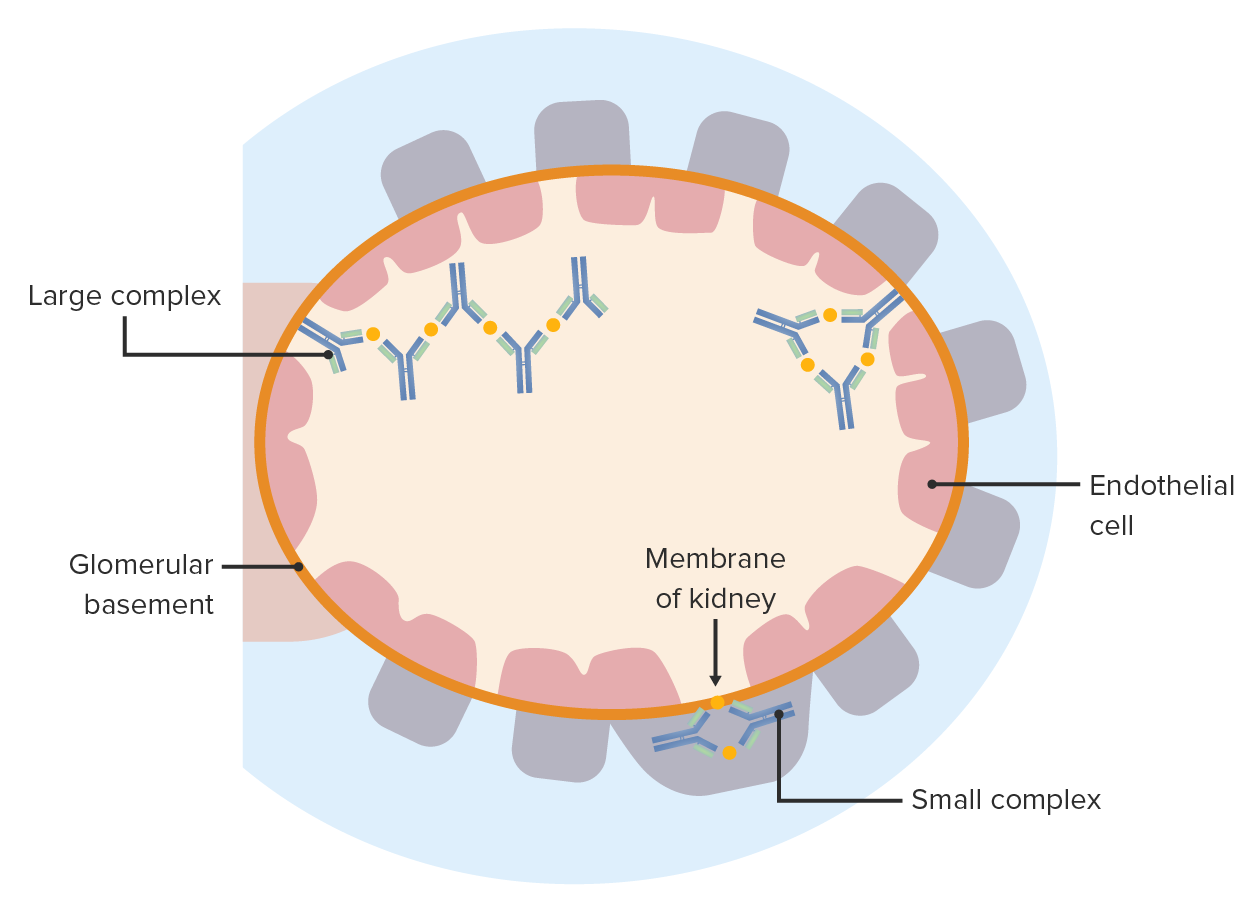Playlist
Show Playlist
Hide Playlist
Hypersensitivity: Type 3
-
Slides Hypersensitivity.pdf
-
Reference List Immune System.pdf
-
Download Lecture Overview
00:01 Turning now to Type III hypersensitivity - immune complex mediated. 00:06 This can result in the activation of macrophages, the recruitment and activation of neutrophils, immune complexes can get trapped in very small locations like the glomeruli of kidney, small blood vessels in the skin and so forth. 00:22 And cause pathological damage. 00:26 So some examples of type III hypersensitivity - systemic lupus erythematosus (SLE) which is characterized by the development of anti-nuclear antibodies. 00:38 These are antibodies against a range of different antigens present in the nucleus such as DNA, histones and so on. 00:46 Post-streptococcal glomerulonephritis which is due to a reaction to streptococcal cell wall antigens. 00:53 Serum sickness caused by exposure to foreign antiserum, for example a horse anti-snake venom. 01:02 And polyarteritis nodosa which can occur in response to hepatitis B virus surface antigen stimulation of a immune response. 01:16 Immune complex mediated tissue injury happens when the circulating immune complexes get deposited in blood vessels. 01:26 Complement and Fc receptor-mediated recruitment and activation of inflammatory cells occurs. 01:33 There are lysosomal enzymes that are released. 01:36 Reactive oxygen species being produced by neutrophils, and the end result is a vasculitis. 01:44 And here we have some examples of the trouble that immune complexes can cause in type III hypersensitivity. 01:51 Activation of complement leading to the activation of macrophages and neutrophils with the release of inflammatory mediators, of reactive oxygen intermediates, proteolytic enzymes and so forth. 02:06 A whole load of potentially damaging substances released from these macrophages and neutrophils. 02:12 Following complement activation due to the formation of immune complexes, anaphylatoxins, complement component C3a and C5a can cause the activation of mast cells. 02:25 Also, platelets can become activated and aggregate.
About the Lecture
The lecture Hypersensitivity: Type 3 by Peter Delves, PhD is from the course Hypersensitivity and Autoimmune Disease.
Included Quiz Questions
Which of the following is the main pathology in type III hypersensitivity reaction?
- Accumulation of immune complexes
- Mast cell sensitization
- Binding of antibodies to cell membrane antigens
- Pre-sensitized T cells
- Antibody stimulation of specific cell targets
Which of the following conditions is NOT correctly matched to its causal antibody/antigen?
- Myasthenia Gravis - acetacholine receptor agonist
- Systemic lupus erythematosus - anti-nuclear antibody
- Serum sickness - foreign antisera
- Polyarteritis nodosa - hepatitis B virus surface antigen
Customer reviews
5,0 of 5 stars
| 5 Stars |
|
5 |
| 4 Stars |
|
0 |
| 3 Stars |
|
0 |
| 2 Stars |
|
0 |
| 1 Star |
|
0 |




